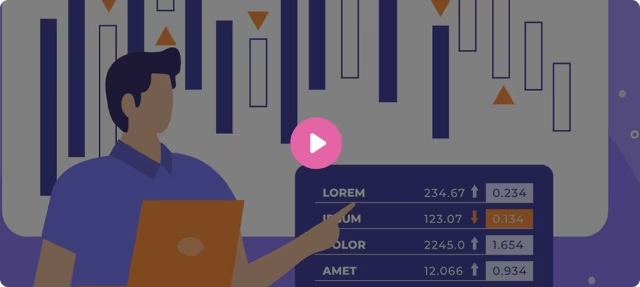 (1).png)

What is a Commodity Market in Pakistan?
Understanding Securities vs Commodities
Before diving into commodity markets, it’s essential to distinguish them from securities markets. Securities like stocks and bonds represent ownership or debt in a company or government. In contrast, commodities refer to actual physical goods such as oil, gold, and wheat.
Securities derive value from company performance or economic conditions, while commodities are priced based on global supply and demand. At exchanges like Pakistan Mercantile Exchange (PMEX), investors can trade these commodities through specialized contracts, including futures and options.
What is a Commodity Market?
A commodity market is a centralized platform—physical or virtual—where raw materials or primary agricultural products are bought and sold. These markets serve critical functions:
- Price Discovery: Through market forces, commodities are priced transparently.
- Risk Management: Producers and consumers hedge against future price volatility.
- Liquidity and Access: Markets enable fast buying/selling with minimal cost slippage.
- Economic Signals: Commodity prices reflect global macroeconomic conditions.
Commodity markets can be domestic or international, and trading is typically facilitated via organized exchanges or over-the-counter (OTC) arrangements.
Types of Commodity Markets
- Spot Market (Cash Market)
- Commodities are bought and sold for immediate delivery.
- Prices are determined by current demand and supply.
- Used by physical buyers like millers, oil refiners, or exporters.
- Derivatives Market
- Trades in futures or options contracts, where delivery or settlement occurs at a future date.
- Allows hedging, speculation, and arbitrage opportunities.
- PMEX is Pakistan’s sole licensed derivatives exchange for commodities.
Different Ways to Invest in Commodity Markets
| Investment Method | Description |
|---|---|
| Direct Physical Purchase | Buying gold bars, crude oil barrels, or bags of wheat |
| Futures Contracts | Agreement to buy/sell a commodity at a future date at a set price |
| Options Contracts | Right but not obligation to buy/sell at a specific price |
| Exchange-Traded Funds (ETFs) | Track commodity prices (more common in global markets) |
| Commodity Stocks/Mutual Funds | Invest in companies involved in commodity production |
| Commodity Indices | Represent basket prices of multiple commodities |
In Pakistan, futures contracts traded on PMEX offer the most accessible and regulated route for individual investors.
Spot vs Derivatives Market: Key Differences
| Feature | Spot Market | Derivatives Market |
|---|---|---|
| Settlement Time | Immediate | Future date (e.g., monthly contracts) |
| Price Volatility | Low to moderate | Higher due to leverage |
| Use Case | Physical delivery | Hedging, speculation |
| Capital Requirement | Full amount upfront | Margin-based, partial upfront payment |
| Common Users | Producers, retailers | Traders, hedgers, arbitrageurs |
How to Trade Commodities via Derivatives in Pakistan
Here’s a step-by-step guide for trading at PMEX through a member broker like Azee Securities:
- 1. Open a Trading Account
- Choose a PMEX-licensed broker
- Complete Know Your Customer (KYC) process
- 2. Understand the Contracts
- Know the lot size, contract expiry, margin requirement, and settlement method
- 3. Deposit Margin
- Typically ranges from 5% to 15% of contract value
- This acts as a security deposit
- 4. Place Orders
- Through a trading platform or brokerage terminal
- Market, limit, or stop-loss orders are available
- 5. Monitor and Manage
- Track global commodity news, charts, and technical indicators
- 6. Exit or Roll Over
- You can square off your position before expiry or roll into a new contract
Key Players in the Commodity Derivatives Market
Understanding the major participants helps explain market behavior:
- Hedgers: Use futures to protect against price fluctuations (e.g., a wheat farmer locking in a future selling price)
- Speculators: Profit from directional price movements
- Arbitrageurs: Exploit price differences between markets
- Market Makers: Provide liquidity by offering buy/sell quotes
- Brokers & Exchanges: Enable access, provide infrastructure and ensure regulatory compliance
The Role of PMEX in Pakistan’s Commodity Market
- Regulated trading in gold, silver, oil, cotton, wheat, palm oil, and more
- Leverage through low-margin requirements
- Real-time trading via the MetaTrader 5 (MT5) platform
- Micro and mini contract options to make participation affordable
- Daily margin calls and real-time risk monitoring
Example: A textile exporter can hedge cotton prices using a PMEX cotton futures contract to lock in costs in advance, protecting themselves from price spikes.
Quick Recap
- A commodity market is a platform where raw materials like oil, gold, and wheat are traded either for immediate delivery or future settlement.
- It is different from the securities market, which deals in ownership or debt instruments like stocks and bonds.
- Commodity markets are divided into spot markets (immediate settlement) and derivatives markets (future contracts).
- Investors can access commodities through physical buying, futures, options, mutual funds, or commodity-linked stocks.
- The PMEX is Pakistan’s licensed platform for regulated commodity futures trading.
- Futures trading allows traders to enter contracts with margin requirements, not the full amount upfront.
- Participants in the commodity market include hedgers, speculators, arbitrageurs, market makers, and brokers.
- PMEX offers contracts in gold, silver, crude oil, cotton, wheat, and more with micro and mini lots for small investors.
- Trading involves account opening, understanding contract specifications, margin deposits, and active market monitoring.
Get Started with Azee Securities
Ready to start your investment journey with Azee Securities? Open a Stock Trading Account and gain access to the Pakistan Mercantile Exchange (PMEX). Let Azee Securities help you make informed decisions. Our expert advisors, advanced trading platform, and real-time market data ensure you stay ahead of the curve.
Azee Securities Limited
Member Pakistan Stock Exchange | PMEX | NCCPL | CDC
SECP Registered & Regulated